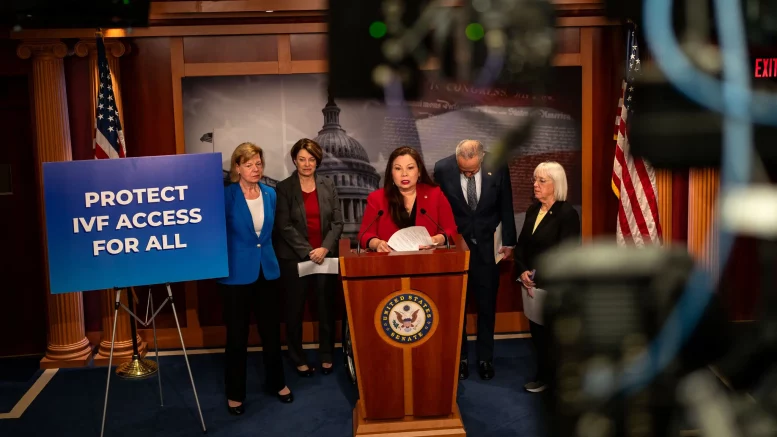On Wednesday, a Republican senator took action to stall the swift progression of a bill aimed at establishing federal safeguards for in vitro fertilization (I.V.F.) and other fertility treatments. This move follows a recent ruling by the Alabama Supreme Court, which decreed that frozen embryos should be legally recognized as children. Senator Cindy Hyde-Smith of Mississippi objected to the approval of the measure, effectively derailing its immediate prospects.
The proposed legislation seeks to enshrine a federal right to access assisted reproductive technology, ensuring both patients and providers are shielded from prosecution. Democrats, led by Senator Tammy Duckworth of Illinois, strategically attempted to advance the bill, exposing potential divisions within the Republican Party on the issue. Senator Hyde-Smith criticized the bill on the Senate floor, characterizing it as an overreach and asserting that it fails to address concerns adequately.
Democrats framed their push for the bill as a challenge to Republicans, particularly in light of their recent vocal support for I.V.F. in response to the Alabama ruling. However, many of these same Republicans have sponsored bills advocating for the declaration of life beginning at fertilization, a stance that could conflict with aspects of fertility treatments. Senator Duckworth, who herself underwent I.V.F. treatment, emphasized the urgency of the bill’s protections, particularly in light of the recent legal decision.
This episode underscores the delicate political balancing act Republicans face, exacerbated by the Alabama ruling and the broader implications of the Supreme Court’s decision to overturn Roe v. Wade. The looming threat to reproductive healthcare access has galvanized Democrats, who view the issue as a potent electoral wedge. Senate Majority Leader Chuck Schumer of New York condemned the Alabama ruling and warned of further restrictive decisions to come.
The aftermath of the Alabama ruling has already seen practical consequences, with several medical providers in the state halting I.V.F. treatments. Senator Duckworth had previously attempted to pass a similar bill in 2022, encountering objections from Senator Hyde-Smith. Her intention to seek a roll-call vote underscores the determination of Democrats to advance the legislation.
While some Republicans expressed willingness to consider the bill, many argued that such matters should be left to state legislatures. They portrayed the Alabama ruling as an isolated incident and anticipated state-level action to protect I.V.F. Senator Mike Rounds of South Dakota emphasized the need for varied approaches at the state level before federal intervention.
However, past legislative efforts by Republicans, such as the Life at Conception Act, which received widespread Republican support, could complicate the issue. This act, if enacted, could severely restrict I.V.F. treatments by recognizing fertilized eggs as persons entitled to constitutional protections. The subsequent scramble by Republicans to distance themselves from potential repercussions underscores the complex dynamics at play.
In the House, Representative Nancy Mace of South Carolina introduced a nonbinding resolution in support of I.V.F. access, though it lacks substantive protections. Democrats vowed to hold Republicans accountable on the issue, highlighting the inconsistency between supporting I.V.F. while advocating for fetal personhood laws. The political ramifications of Republicans’ stance on reproductive rights remain a focal point, with Democrats poised to capitalize on perceived vulnerabilities in the upcoming elections.

